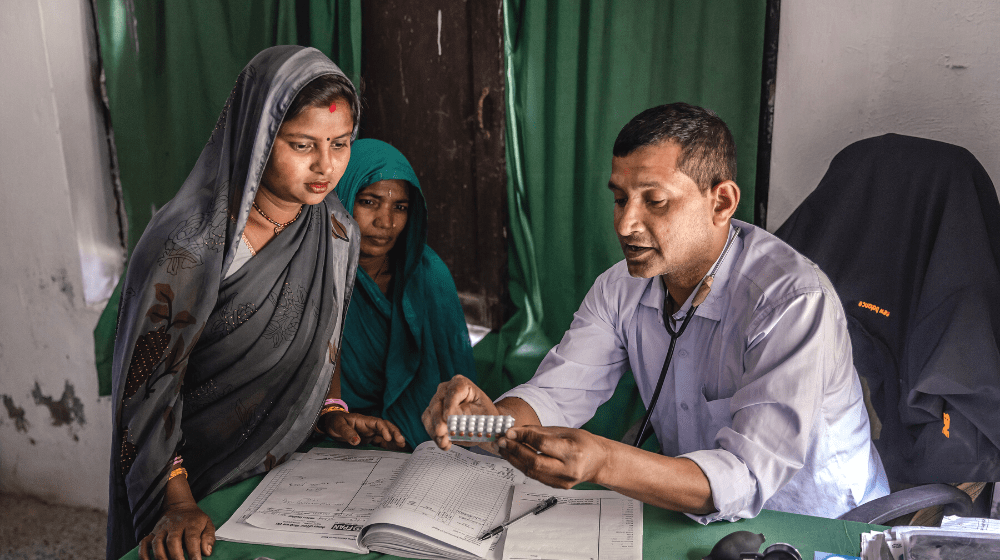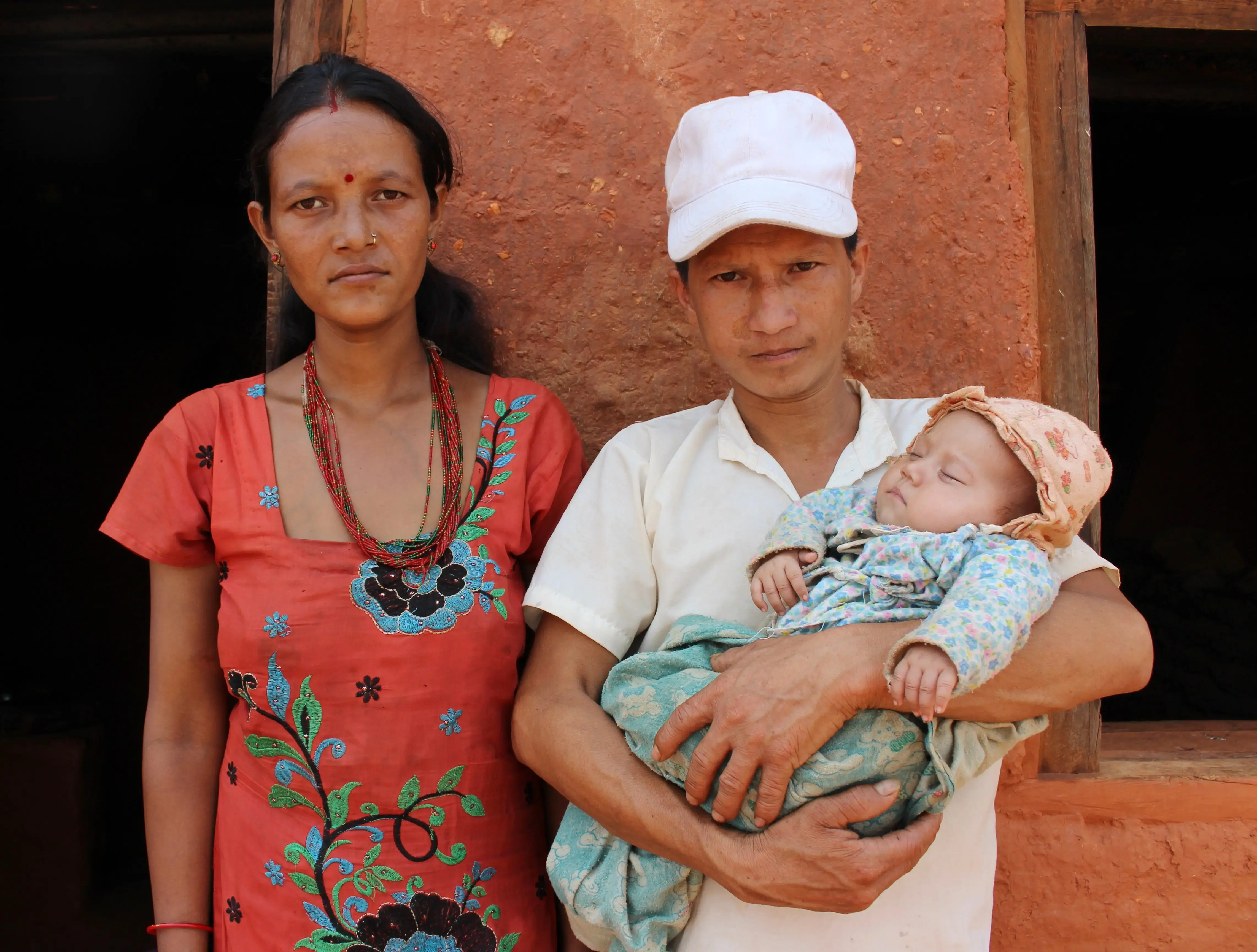A gathering of women is sitting under a tree that provides shade from the morning sun, waiting for the Khajuri family planning camp and health post in Dhanusa district of Madhesh province to open. These women are from a clutch of small houses directly across a large village field where new goalposts for a makeshift football pitch were recently erected to respond to the growing popularity of the sport in Nepal. These 20 women have arrived here to receive a basic health checkup and discuss family planning with the healthcare staff.
The health post and family planning camp encourage women and men to choose how they manage their family lives. These camps and the family planning clinics supported by UNFPA and the Family Planning Association of Nepal are a key link between families, communities, and sexual and reproductive health service provision.
Deep Narayan Mandal, who is managing the event, explains, “the camps offer essential services for women, offering them accurate and context-appropriate advice and a range of contraceptives if they choose family planning methods.” According to UNFPA analysis, this investment in the sexual and reproductive health of women pays significant wider community dividends. In the Asia Pacific region and Africa, for example, every dollar invested in reproductive, maternal and child health interventions delivers a minimum of USD 14 return.
One of the women in this group, Punita Mandal, has a four-year-old daughter sitting on her lap. This is her third child, and she has decided to take contraceptive pills after visiting one of the camps while her husband returns for his home visits from across the border in India, where he works. “I feel more comfortable with pills because I can just stop taking them if I want a baby or if I think the pills are not working for me,” says Punita. She came to this decision after a consultation at the clinic, and her husband, supports this decision.
Many of the women sitting here have similar stories, with a large number of male family members working across the border or further afield. The free contraceptives available at the clinic give these women much more control over how they plan their families. Punita stresses that “family planning gives us the power of choice in our lives, and we can decide when we want to have children, and this helps us plan for their financial future.”
Cost is a major factor that drives these women to think about how they grow their families. Asha Devi Mandal emphasizes the importance of family planning to avoid additional costs and financial stress from having more children. She explains, “if I have more babies, we would need to spend more money on hospital bills, and as the babies grow, it would add to our financial stress.” Other women nod their heads in agreement and stress they cannot afford to have too many children like in previous generations. “Our generation was married off at a much younger age,” explains Asha.
“We would like to ensure our children have a brighter future.”
All of these women work in farming and spend up to four hours daily in the fields or tending livestock. With most of their husbands away working, they are also solely responsible for all of the domestic work, including household cleaning, cooking, and childcare, which means long days for each of them.
Most women here attend the camp on a monthly basis and receive contraceptive pills because they feel it gives them the flexibility and amount of control that they require. According to Kabita Mandal, a big advantage of the camp is that it is on their doorstep, a few hundred metres away from their homes, and this provides easy access to a community clinic for family planning and other reproductive health services. She continues, “because it’s close to my home and it saves me from travelling long distances to the provincial hospital in Janakpur, it is a great help to people in the community, who can all walk to the clinic within 15 minutes. This is especially important for these busy women, who can often wait hours in a hospital without any guarantees they will receive an appointment.
These small, community-led family planning camps and outposts are changing the way communities feel about using family planning. In gaining access to their sexual and reproductive health and rights, these women are able to more fully make plans for their families and make decisions that inform their futures. The advantages of family planning choice are clearly felt in the wider community, and the impact on lives is evident for all the community to see.




